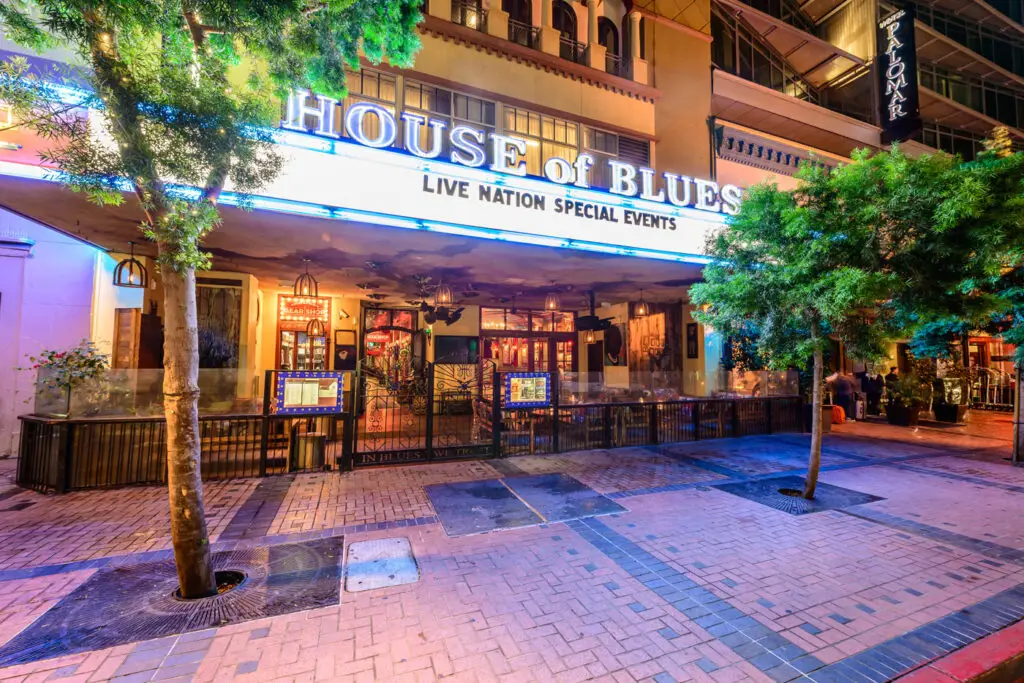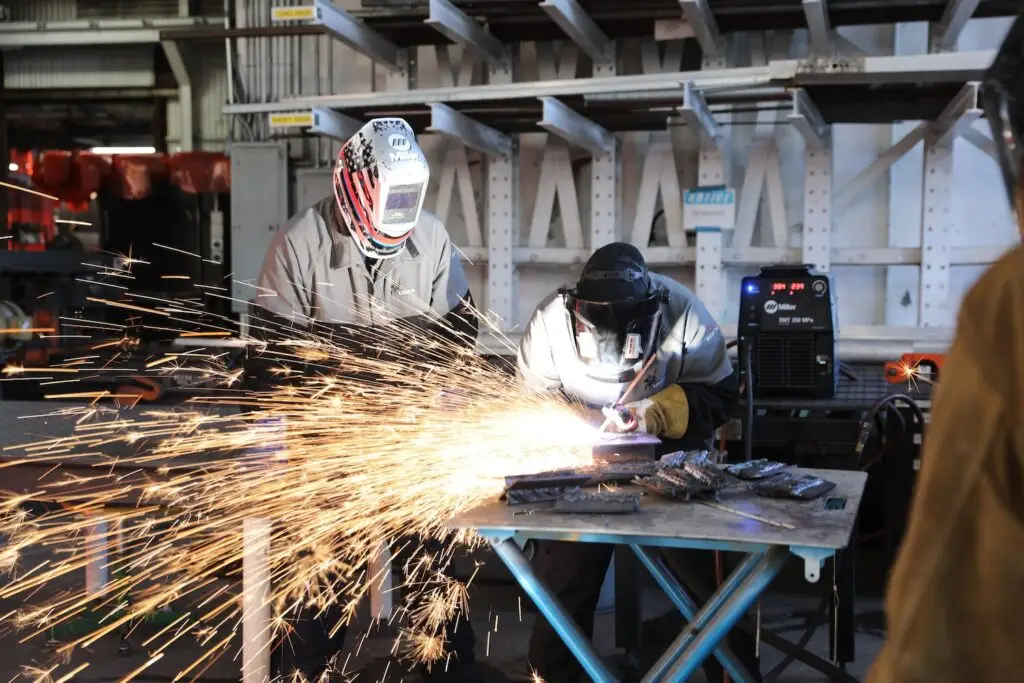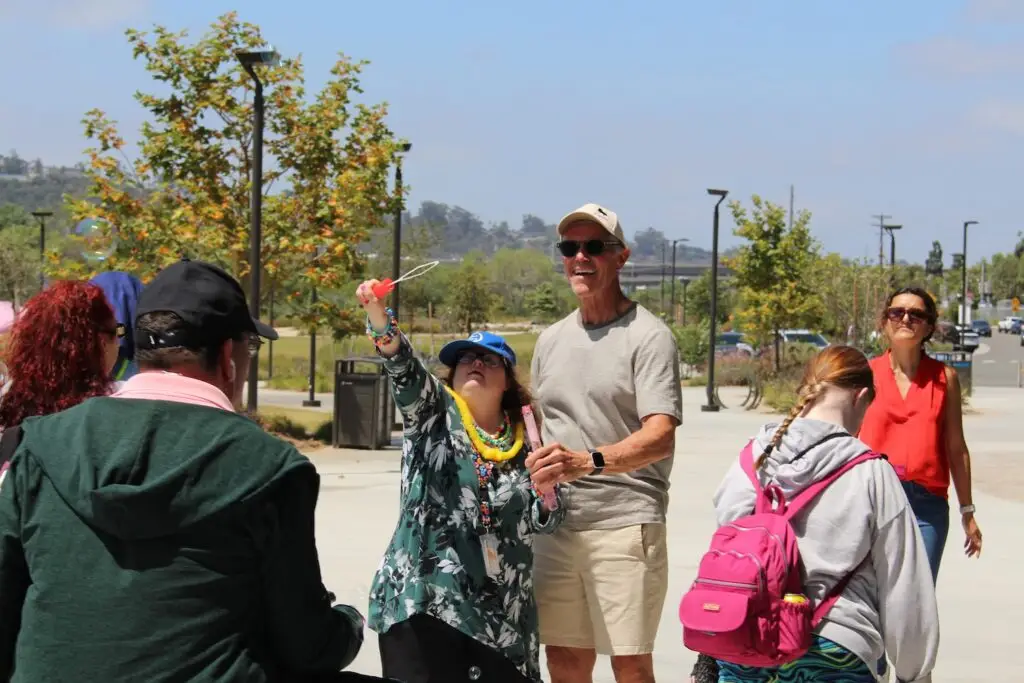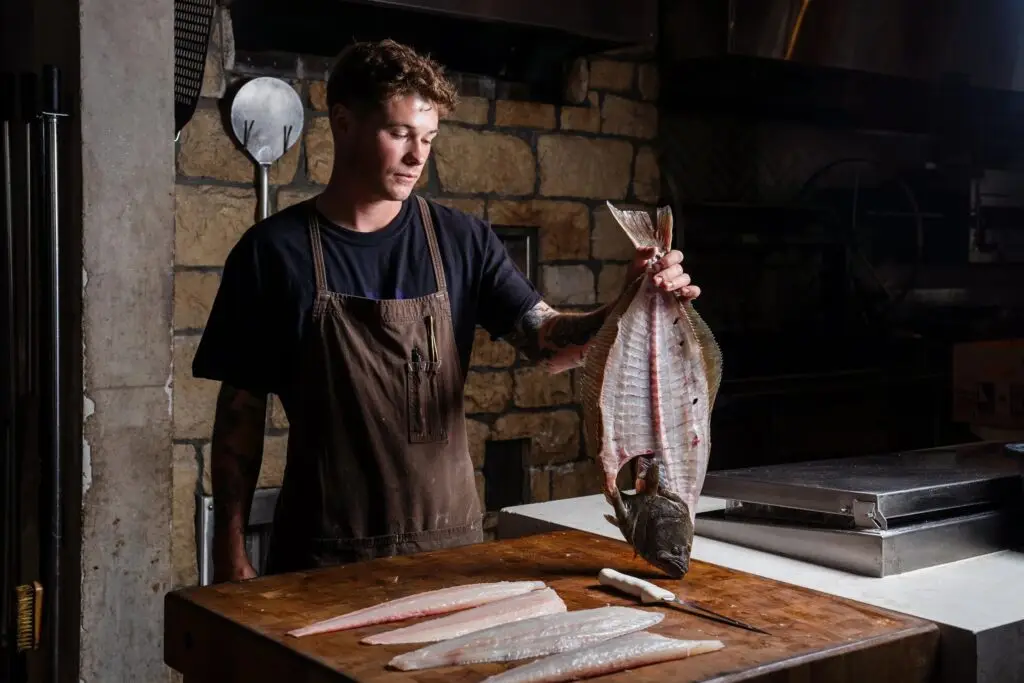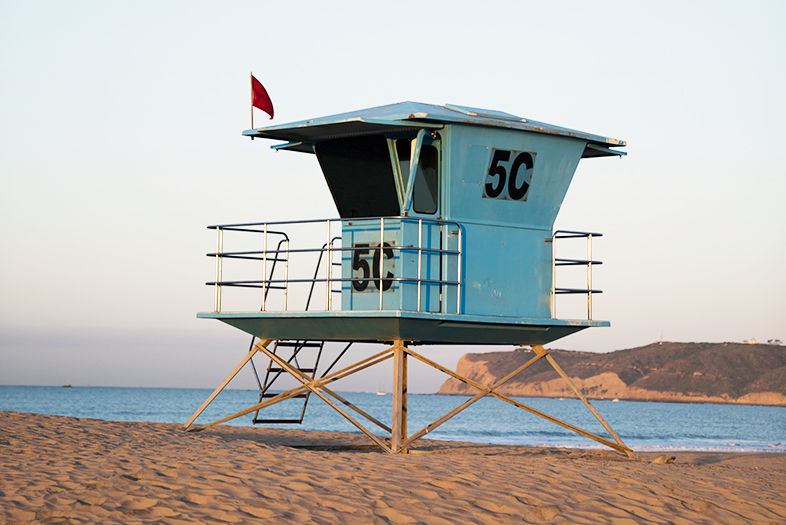Hold Your Ground
Tower 5C sits on one of the oldest lifeguarding locations of Coronado Beach’s 1.75-mile sandy stretch. It’s the hub of North Beach because, when it was originally constructed in 1937, this portion was the sandiest and most visited. (Central Beach, in front of the Hotel Del, was relatively rocky back then.) The original wooden tower burned to the ground in 1949 and there’ve been a few replacements since.
Name Fame
The C stands for Coronado. The city’s lifeguard towers are numbered one through six from south to north, and the “C” distinguishes them from the ones on the Silver Strand, which are just numbered. Soon, 5C will change to 6C, as a seventh tower is being added to Central Beach, which today attracts more visitors than North Beach.
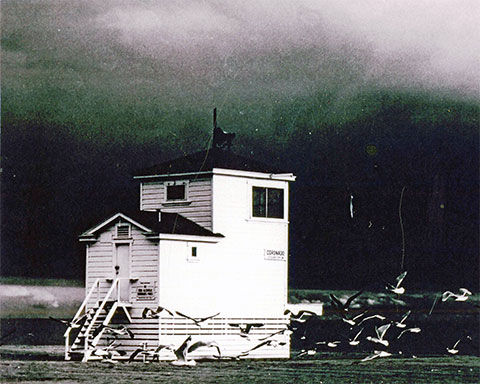
Inside the Icon: Lifeguard Tower 5C
From the archives: Coronado’s original wooden lifeguard tower circa 1940.
Into the Blue
The current tower was built in the late ’90s, fitted with a galvanized steel base, fiberglass superstructure, stainless steel railings and stairs, and windows in tempered and tinted glass. The blue color? Coronado Fire Department and Lifeguard Services thought it was pleasing to the eye. Lifeguards are responsible for the tower’s daily maintenance, like sweeping and window cleaning. It also requires power washing a few times a year and a new paint job every four to five years. The base is replaced every 15 to 20 years, depending on how fast it rusts.
Inventory Check
Everything a lifeguard could need can be found here: buoys, first-aid kits, chairs, traffic cones, cleaning supplies, and colored flags—red, for instance, means high hazard and purple, marine pests. More than 10,000 bandages have been dispensed from 5C over the last 20 years. Coronado Lifeguard Captain Sean Carey lists a 7-foot rescue paddleboard among the less ordinary pieces of inventory. Its smaller size, compared to typical 12-foot paddleboards, is easier to get through high surf in the summer.
Rescue Ready
More than 100 lifeguards have used the current tower, which is staffed seasonally, from 10 a.m. to 6 p.m. on weekends in the spring and daily in the summer. And they stay busy, given the vantage point oversees both swimming- and surfing-only zones—where south swells break hard and fast in shallow water, resulting in rip currents. Over time, 5C has evolved from a starting point for lifeguards to run into the water to more of a dispatch center where they can alert and direct land and sea rescue vehicles. In its roughly 20-year tenure, the current tower has been associated with over 2,000 rescues.
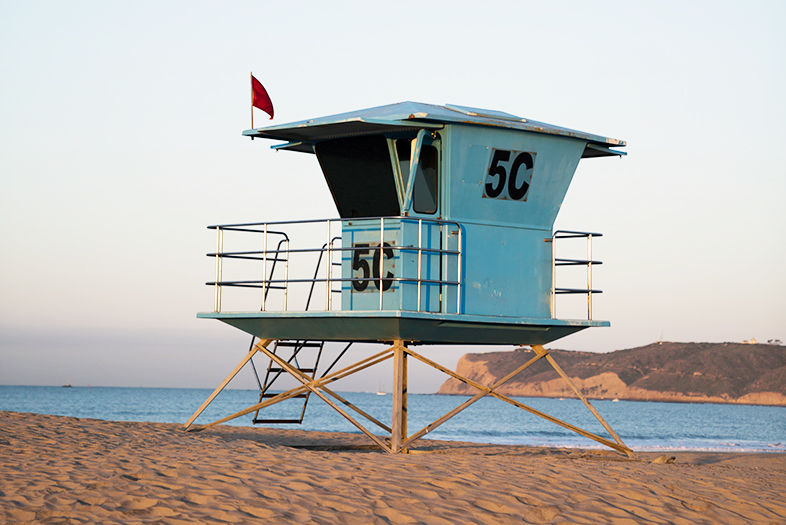
Inside the Icon: Lifeguard Tower 5C
PARTNER CONTENT
Photo: Jay Reilly




